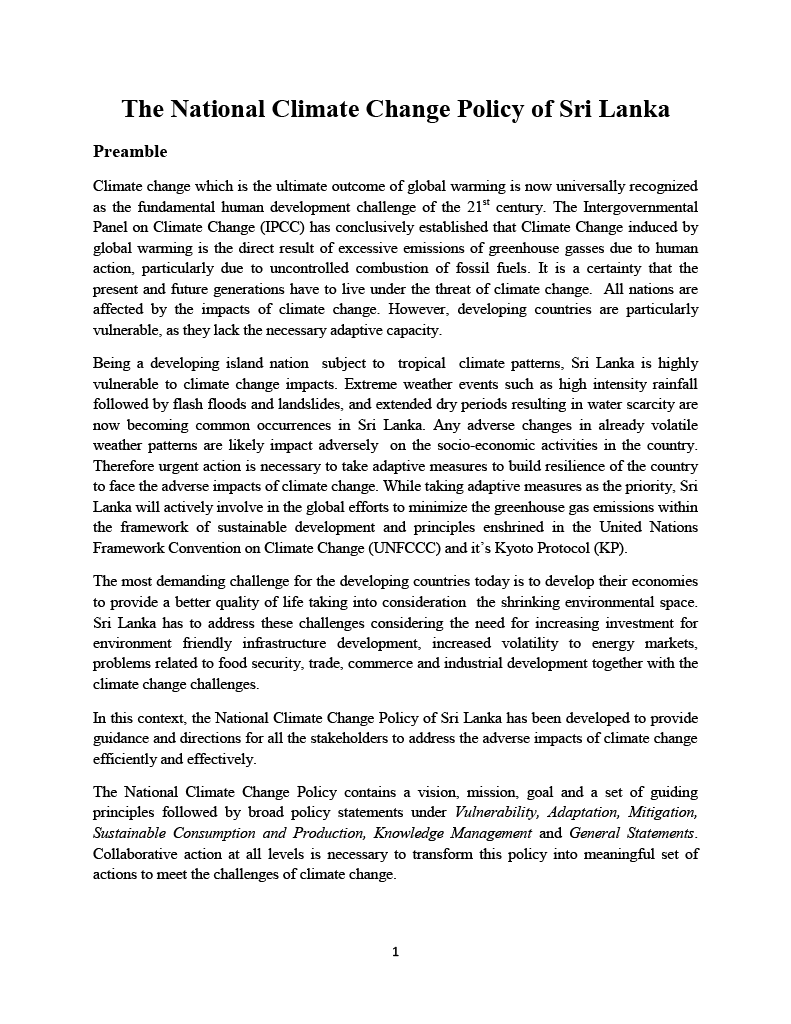Sri Lanka’s National Climate Change Policy 2012 acknowledges the global warming crisis as the paramount challenge of the 21st century. The Intergovernmental Panel on Climate Change (IPCC) establishes the link between human activities, especially the uncontrolled combustion of fossil fuels, and climate change.
As a tropical island nation, Sri Lanka faces increasing vulnerability to extreme weather events and fluctuating climate patterns, impacting socio-economic activities. Recognizing the urgency, the policy emphasizes adaptive measures to build resilience.
The Vision is a future where climate change has no adverse consequences on Sri Lanka, with the Mission focusing on addressing climate change locally and globally. The Goal is to adapt to and mitigate climate change impacts within sustainable development. Objectives include sensitizing communities, taking adaptive measures, mitigating greenhouse gas emissions, promoting sustainable consumption, enhancing knowledge, and mainstreaming climate change in national development.
Guiding Principles stress the immediate threat of climate change, emphasizing environmentally sound, socially acceptable, and economically viable actions. The policy statements under Vulnerability, Adaptation, Mitigation, Sustainable Consumption and Production, Knowledge Management, and General Statements detail strategies for assessing vulnerability, disaster management, health impacts, food security, water resources, infrastructure, energy, transportation, industry, waste management, agriculture, sustainable consumption, knowledge management, institutional coordination, research and development, technology transfer, legal frameworks, market mechanisms, and resource mobilization.
The policy aims for collaborative action at all levels to effectively combat climate change challenges.
The Policy was retrieved from the Ministry of Mahaweli Development & Environment and approved in 2012.
Recent Updates
On 31 August 2023, it was reported that Sri Lanka is in the process of strengthening its national environment policy related to climate change, including through global and international processes, which could remove constraints and help enhance risk management in the country.
Help SAR-Climate keep this document page accurate and updated by suggesting an edit or any corrections here.

